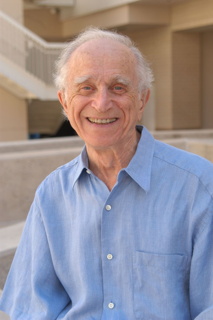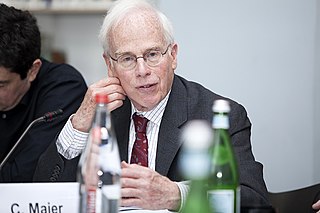Top 263 Participants Quotes & Sayings - Page 5
Explore popular Participants quotes.
Last updated on April 21, 2025.
In no organized sport do the participants have to endure days of struggle just to get to the starting line of their event. The option to drop out of a race that is going badly does not exist for a climber halfway up a big route, and may entail more risk than pushing on. A team of volunteers will not be waiting with warm blankets and hot food at the next bivy ledge. When you reach the summit, having overcome the challenges that inspired you for months or years, you are not at the finish line. The race is not over. You can't relax and let your guard down like a normal athlete.
No other art-medium–neither painting nor poetry–can communicate the specific quality of the dream as well as the film can. When the lights go down in the cinema and this white shining point opens up for us, our gaze stops flitting hither and thither, settles and becomes quite steady. We just sit there, letting the images flow out over us. Our will ceases to function. We lose our ability to sort things out and fix them in their proper places. We're drawn into a course of events–we're participants in a dream. And manufacturing dreams, that's a juicy business.
Stated in the simplest terms, the recognized solution to the problem of foodborne illness is a comprehensive prevention strategy that involves all participants in the food system, domestic and foreign, doing their part to minimize the likelihood of harmful contamination. And that is the strategy mandated by FSMA. It is not a strategy that assumes we can achieve a zero-risk food supply, but it is a strategy grounded in the conviction that we can better protect consumers and the economic vigor of the food system if everyone involved implements reasonably available measures to reduce risk.
One of the great things about a free market is that it's inherently and indefatigably Darwinistic. Left to its own devices, a free market will eventually weed out the stupid from both 'ends' of the food chain otherwise described as supply and demand. As money is liberated from the hands of the stupid, those who would sell products or services to the stupid will eventually lose their share of the marketplace. Devoid of any 'benevolent' interference from government, the process is gloriously relentless, and cannot help but yield a successively smarter class of participants.
In a dispassionate comparison of the relative values of human and robotic spaceflight, the only surviving motivation for continuing human spaceflight is the ideology of adventure. But only a tiny number of Earth's six billion inhabitants are direct participants. For the rest of us, the adventure is vicarious and akin to that of watching a science fiction movie. At the end of the day, I ask myself whether the huge national commitment of technical talent to human spaceflight and the ever-present potential for the loss of precious human life are really justifiable.
What has happened to protesters in the past was that, basically, the government in 2012 put an end to a series of mass protests by changing laws, by making it possible to arrest anybody for protests, and by making basically a show of imprisoning not just protest leaders, and not specifically protest leaders, but activists, rank-and-file protest participants. That gets across the idea that anybody who joins a protest without being an organizer, without being a visible leader, risks arrest, and not risks just arrest, but years in a Russian jail.
The citizens of a city are not guilty of the crimes committed in their city; but they are guilty as participants in the destiny of [humanity] as a whole and in the destiny of their city in particular; for their acts in which freedom was united with destiny have contributed to the destiny in which they participate. They are guilty, not of committing the crimes of which their group is accused, but of contributing to the destiny in which these crimes happened.
Researchers studied 34 students at the University of Virginia, taking them to the base of a steep hill and fitting them with a weighted backpack. They were then asked to estimate the steepness of the hill. Some participants stood next to friends during the exercise, while others were alone. The students who stood with friends gave lower estimates of the steepness of the hill. And the longer the friends had known each other, the less steep the hill appeared.
My birth experience is not right for everyone, but it was so right for me. I am changed because of that experience, i saw my power and I felt my power, and it's gotten me through a lot of hardship. I tell myself that if i could get through that, I can get through anything. I think women are losing an opportunity by not aspiring to have births in which they are active participants.
In the Gaia theory air, water, and soil are major components of one central organism, planet Earth. What we typically think of as life - the plants and animals that inhabit the earth - has evolved merely to regulate the chemistry of the biosphere. Humans are insignificant participants, far less important to the life cycle than termites. Even the imbalance that we have created by adding massive quantities of carbon dioxide to the atmosphere may be brought back to acceptable levels by other organisms functioning in their capacity to correct excesses.
There are several differences between a football game and a revolution. For one thing, a football game usually lasts longer and the participants wear uniforms. Also, there are usually more casualties in a football game. The object of the game is to move a ball past the other team's goal line. This counts as six points. No points are given for lacerations, contusions, or abrasions, but then no points are deducted, either. Kicking is very important in football. In fact, some of the more enthusiastic players even kick the ball, occasionally.
With a profound first-hand knowledge of participants, encompassing linguistic competence, and engaging prose, Padraic Kenney recreates the simultaneously serious and playful currents of East Europe's overthrow of repressive state socialism. What an invaluable guide to the elusive exhilaration that motivated the actors and captivated all of us who followed the transformation with such hope! We can appreciate neither the ebullience of 1989 nor the disappointment with the quotidian reality that followed without understanding Kenney's 'carnival.'
If a betting game among a certain number of participants I played long enough, eventually one player will have all the money. If there is any skill involved, it will accelerate the process of concentrating all the stakes in a few hands. Something like this happens in the market. There is a persistent overall tendency for equity to flow from the many to the few. In the long run, the majority loses. The implication for the trader is that to win you have to act like the minority. If you bring normal human habits and tendencies to trading, you'll gravitate toward the majority and inevitably lose.
Economists often talk about the 80/20 Principle, which is the idea that in any situation roughly 80 percent of the “work” will be done by 20 percent of the participants. In most societies, 20 percent of criminals commit 80 percent of crimes. Twenty percent of motorists cause 80 percent of all accidents. Twenty percent of beer drinkers drink 80 percent of all beer. When it comes to epidemics, though, this disproportionality becomes even more extreme: a tiny percentage of people do the majority of the work.
In the native literatures of North America there aren't any novels. Instead, the major genre is myth. And myths are stories that are fundamentally about the world, not about human individuals. A myth needn't include any humans at all. If it does include them, they're usually minor characters - imaginary humans sent out like scouts to report back on what's happening in the mythworld, but not central participants in the action.
There is no extrahistorical or eternalist or abstractivistically pure standpoint where we can get oriented in the absolute Truth per se before dealing with the concrete lineaments of how we happen exist in this time and place. We are participants in a dynamic system and we know its profile only by its action in organizing how we interact together and how we see our own selves. "The truth is the whole," and the whole is a system of living energy: our life as human and historical spirits.
The EU might have become a large federal nation. But they would have had to do things differently. Number one, they would've had to make people feel like participants in a common project of autonomous law-giving. Much more political accountability, much more participation. That didn't happen, I think, because the movers and shakers were more concerned with economic union than political union.
When we haven't the time to listen to each other's stories we seek out experts to tell us how to live. The less time we spend together at the kitchen table, the more how-to books appear in the stores and on our bookshelves. But reading such books is a very different thing than listening to someone' s lived experience. Because we have stopped listening to each other we may even have forgotten how to listen, stopped learning how to recognize meaning and fill ourselves from the ordinary events of our lives. We have become solitary; readers and watchers rather than sharers and participants.
It seemed like so much of romantic relationships today have to do when the people are not in the same room. Whether it's texting or emailing or Facebooking, there's a kind of distance between the participants. I think it's sort of shifted the energy of that first romantic meeting, where it's quicker, perhaps more desperate, more energetic, in a whole different way, and it's resulted in a situation where people seem to be sometimes more comfortable having a sexual relationship than an emotional one.
What I never wanted in art - and why I probably didn't belong in art - was that I never wanted viewers. I think the basic condition of art is the viewer: The viewer is here, the art is there. So the viewer is in a position of desire and frustration. There were those Do Not Touch signs in a museum that are saying that the art is more expensive than the people. But I wanted users and a habitat. I don't know if I would have used those words then, but I wanted inhabitants, participants. I wanted an interaction.
Capitalism is a system in which the central institutions of society are, in principle, under autocratic control. Thus, a corporation or an industry is, if we were to think of it in political terms, fascist, that is, it has tight control at the top and strict obedience has to be established at every level. [...] Just as I'm opposed to political fascism, I am opposed to economic fascism. I think that until the major institutions of society are under the popular control of participants and communities, it's pointless to talk about democracy.
The concept of the "information society" is both vague and all-embracing. Different participants meant different things by it. In practice, though, World Summit on the Information Society only dealt with a small number of issues: ICTs and human rights (to some extent), ICTs and development (to some extent), infrastructure finance and Internet governance. Very large aspects of what might have been included in the "information society" were not really discussed.
Kat and Kropp get in an argument over the war as they rest from an hour’s worth of drill (occasioned by Tjaden’s not saluting a major properly). Kat believes the war would be over if leaders gave all the participants “the same grub and the same pay,” as he says in a rhyme. Kropp believes the leaders of each country should fight each other in an arena to settle the war; the “wrong” people currently do the fighting.






















